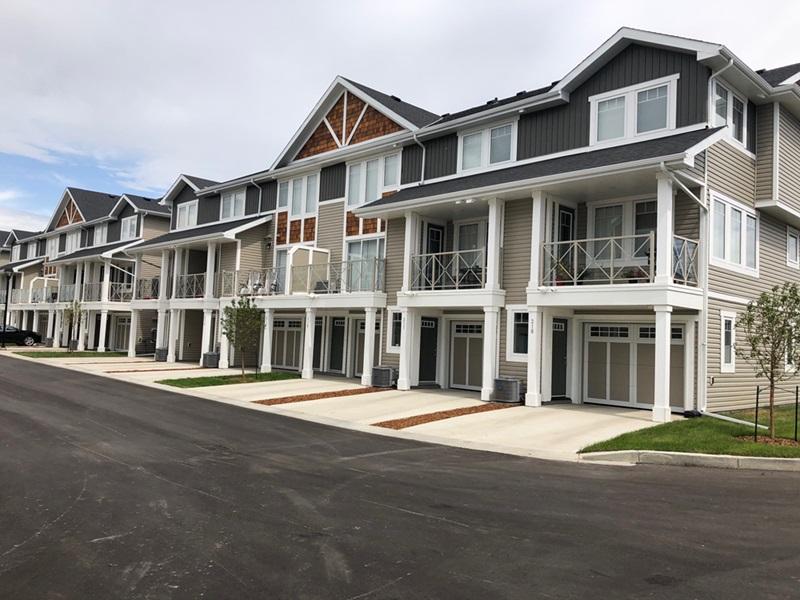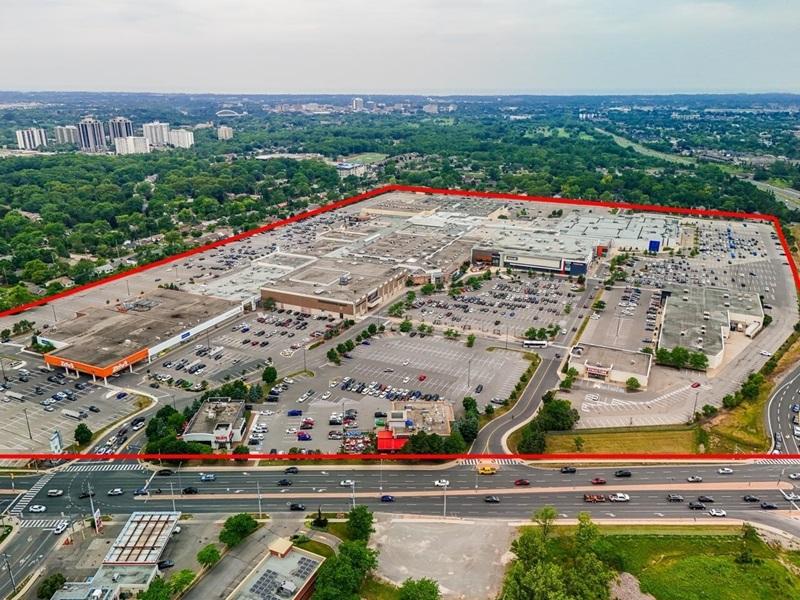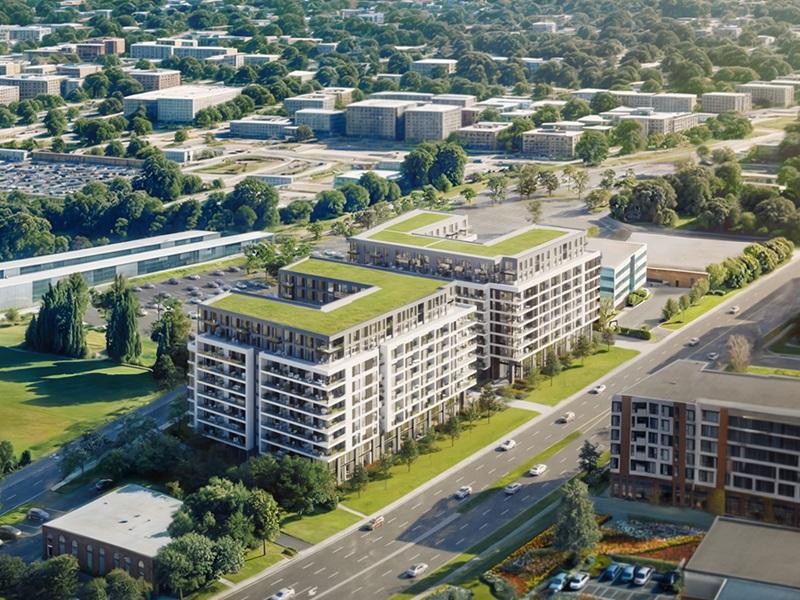
Investor sentiment has remained high during the latter part of 2021, according to a panel of senior Canadian CRE executives at the recent Real Estate Forum in Toronto. (Google Maps)
Commercial real estate investor sentiment has improved significantly over the past year, particularly over the past six months.
Peter Senst, president of Canadian capital markets for CBRE, moderated a four-person panel representing companies that are major investors in Canada and internationally during a session as part of the 30th annual Real Estate Forum at Toronto’s Fairmont Royal York on Dec. 1.
The mood was generally optimistic, with good reason.
There was $1.1 trillion in global transaction volume in 2018 and 2019, and sales are on pace to reach that number again this year, according to Senst. Canada is on track for an all-time record year of $55.3 billion in volume across 9,100 transactions, ahead of the previous peak of $49.3 billion across 7,145 deals in 2018.
“The intersection of Canada as a country and real estate as an asset class is where a lot of capital is coming,” said Senst.
The four senior executives shared thoughts on their companies, the markets and the outlook for 2022 during the session, which had both in-person and virtual attendees.
BentallGreenOak
BentallGreenOak is a real estate investment management advisor and real estate services provider with expertise in office, industrial, multiresidential, retail and hospitality properties. It serves over 750 institutional clients and had approximately $70 billion US worth of assets under management at the end of September. The company has offices in 24 cities in 12 countries.
“Fundamentals are strong and there’s a tremendous amount of global liquidity looking to invest in real estate,” said president Amy Price.
Four main trends Price said BentallGreenOak is thinking about, in terms of investment strategies, are:
– demographic shifts, including age, population, migration and immigration;
– technology, including robotics, artificial intelligence and block chain;
– climate change; and
– income inequality, as the middle class is evaporating and one per cent of the population holds 45 per cent of global wealth.
“It’s about focusing on those global trends and translating them down to a market-by-market level,” said Price.
Large institutional investors are under-allocated to real estate targets and Price believes those targets will increase. She also thinks interest rates will rise.
Apartment rents and occupancy rates have been increasing after taking an initial hit early in the pandemic. Price believes the same thing will happen with the best office assets despite ongoing uncertainty surrounding the asset class.
Determining how to turn environmental, social and governance initiatives into performance and value — as well as employment equity, diversity and inclusion — are BentallGreenOak priorities.
Price said companies need to be reflective of the cities where they invest and the tenants they lease to in order to make the best investment decisions.
Blackstone
Blackstone is a New York City-headquartered firm that invests across a variety of asset classes on behalf of pension funds and other leading institutions. It had $230 billion in real estate assets under management at the end of the third quarter.
Logistics properties are Blackstone’s top global priority. It owns 1.2 billion square feet of warehouse space around the world, which represents 40 per cent of its portfolio.
Blackstone is investing in rental housing since there’s a shortage in most of the markets where it’s involved.
Senior managing director and head of the Americas Nadeem Meghji said Blackstone is the largest private owner of life science office space in the world and the asset class has benefited from accelerated research and development spending since the pandemic started.
Blackstone is also becoming a larger owner of studio assets because of the increased focus on the streaming of original content shows and movies on different devices. Los Angeles is benefiting from this, Meghji noted.
While there’s a major dispersion among asset classes, Meghji called the commercial real estate market “pretty healthy” — with the best fundamentals ever in some sectors.
“Lending today is in check and is nothing like what we saw in 2007. So despite the fact that values are higher than they were, and some people might say as high as they’ve ever been in terms of yields, this is not being driven by some sort of debt-fuelled mania like we’ve seen at different moments in the past.”
Meghji noted:
– we’re in a low-yield fixed-income environment where commercial real estate returns are attractive;
– hard assets are coveted during inflationary periods like the one we’re in now;
– many institutions are under-allocated in real estate and looking for more;
– and investors want to deploy capital now before interest rates rise.
He therefore expects high transaction volumes to continue and for the first half of 2022 to look a lot like the second half of 2021.
CPP Investments
CPP Investments is a global investment management organization that invests the assets of the Canada Pension Plan. Its fund is diversified across 20 global markets and a variety of investment types and was valued at $541.5 billion at the end of September.
Managing director and global head of real estate Peter Ballon said there are three major levers CPP Investments can pull to create value: country selection, sector selection and asset selection.
Country selection has traditionally had the biggest impact on returns, but sector selection has become more important recently as logistics properties have made money globally and retail properties have generally lost money in developed markets.
While plenty of capital is flowing into commercial real estate, Ballon said much of it isn’t coming from traditional real estate investors. The source is those seeking the best returns at the moment, so they could move on if better returns can be found elsewhere.
Ballon said pent-up demand from 2020, when investors were unsure about what to do with their capital after the global pandemic hit, led to increased activity in 2021. Reallocating funds has also played a big role.
“A lot of investors realized they were exposed to sectors that traditionally had done very well and now they weren’t doing so well and they realized that they didn’t have enough diversification,” said Ballon. “People are reallocating between sectors, which is creating a lot of turn.”
Ballon doesn’t think more capital will come to commercial real estate as an alternative to fixed income, as interest rates are expected to rise, so he expects lower transaction volumes moving forward.
Oxford Properties
Oxford Properties is a Toronto-headquartered multinational with operations in real estate investment, development and property management. Its portfolio includes office, retail, industrial, multiresidential, life sciences and hotel assets. It’s backed by permanent capital from OMERS, one of Canada’s largest defined benefit pension plans.
Chad Remis, executive vice-president for North America, said Oxford had $70 billion in assets under management, including almost $50 billion in North America. It will do $16 billion in global transactions this year.
“When I joined the company inside a decade ago, we were a $16-billion organization,” said Remis. “There’s a lot of capacity in the system for liquidity and to transact.
“I think there are specific organizations, and we’re one of them, that are going to take advantage of that liquidity and that opportunity to move their portfolio into places where they would prefer their portfolio to be.”
Oxford is doing more deals for lower prices now than it has in the past, according to Remis. It’s particularly interested in investing in “beds, sheds and meds,” referring to multiresidential, logistics and life sciences properties.
“I don’t think private real estate markets were built to sustain this amount of volume and velocity,” Remis said of the hectic activity over the last six months, which he noted has led to back-ups with appraisals, rating agencies, lenders and due diligence.
Oxford will always have a disproportionate amount of money invested in Toronto, Vancouver and Montreal because it’s a Canadian company. Institutional capital likes predictability and Remis said Canadian real estate offers that, even if it takes longer to get in and out of projects because it’s a smaller market in a global context.
Remis expects more global capital to be invested in Canadian real estate in the next decade, which will “create a more dynamic market and a more efficient market with more liquidity.”











